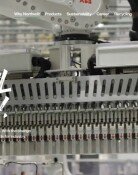DP decides to take white-collar exemptions out of PPP’s chips bill
DP decides to take white-collar exemptions out of PPP’s chips bill
Posted November. 25, 2024 07:47,
Updated November. 25, 2024 07:47

It was reported that the main opposition Democratic Party of Korea (DP) made an internal decision to delete the “white-collar overtime exemption” from a special chips bill proposed by the ruling People Power Party.
A DP lawmaker related to the National Assembly’s Trade, Industry, Energy, SMEs, and Startups Committee said in a phone call with The Dong-A Ilbo on Sunday, “The party internally decided to seek ways to provide a flexible workweek based on the Labor Standards Act without allowing exemptions on semiconductor researchers and developers from the 52-hour workweek system,” adding that the final decision will come out in the committee’s plenary meeting on Tuesday.
The DP argues that workplace flexibility can be achieved by current policies such as the selective work hours system and the flexible work hours system as per the Labor Standards Act, even without the white-collar exemption to be put in place. “Even the flexible work hours system and other programs currently in place can allow researchers and developers to work 64 hours per week for up to 6 months. It does not make any exemptions necessary,” a DP lawmaker said. “Once we allow an exception in a field, it will cause other industries to demand a white-collar exemption, which may break down the framework of the act per se.” In response, the ruling party said, “We should ensure flexible work hours if we survive global competition in the chips industry,” showing a solid determination to persuade opponents persistently by the plenary meeting.
Semiconductor makers argue for greater workplace flexibility for the sake of global competitiveness, given that U.S. and Taiwanese competitors such as NVIDIA and TSMC are widening the gap while Chinese and Japanese firms are chasing South Korea. “The key to global competitiveness lies in promoting technological development and rapid production. Given this, it only drives South Korean chipmakers to rush to accelerate,” Ahn Ki-hyun, executive director of the Korea Semiconductor Industry Association. “We would be able to gain momentum if more work hours were to be invested in research and development, considering that they already lag behind in terms of labor, technological capabilities, and subsidies.”
이승우 suwoong2@donga.com







